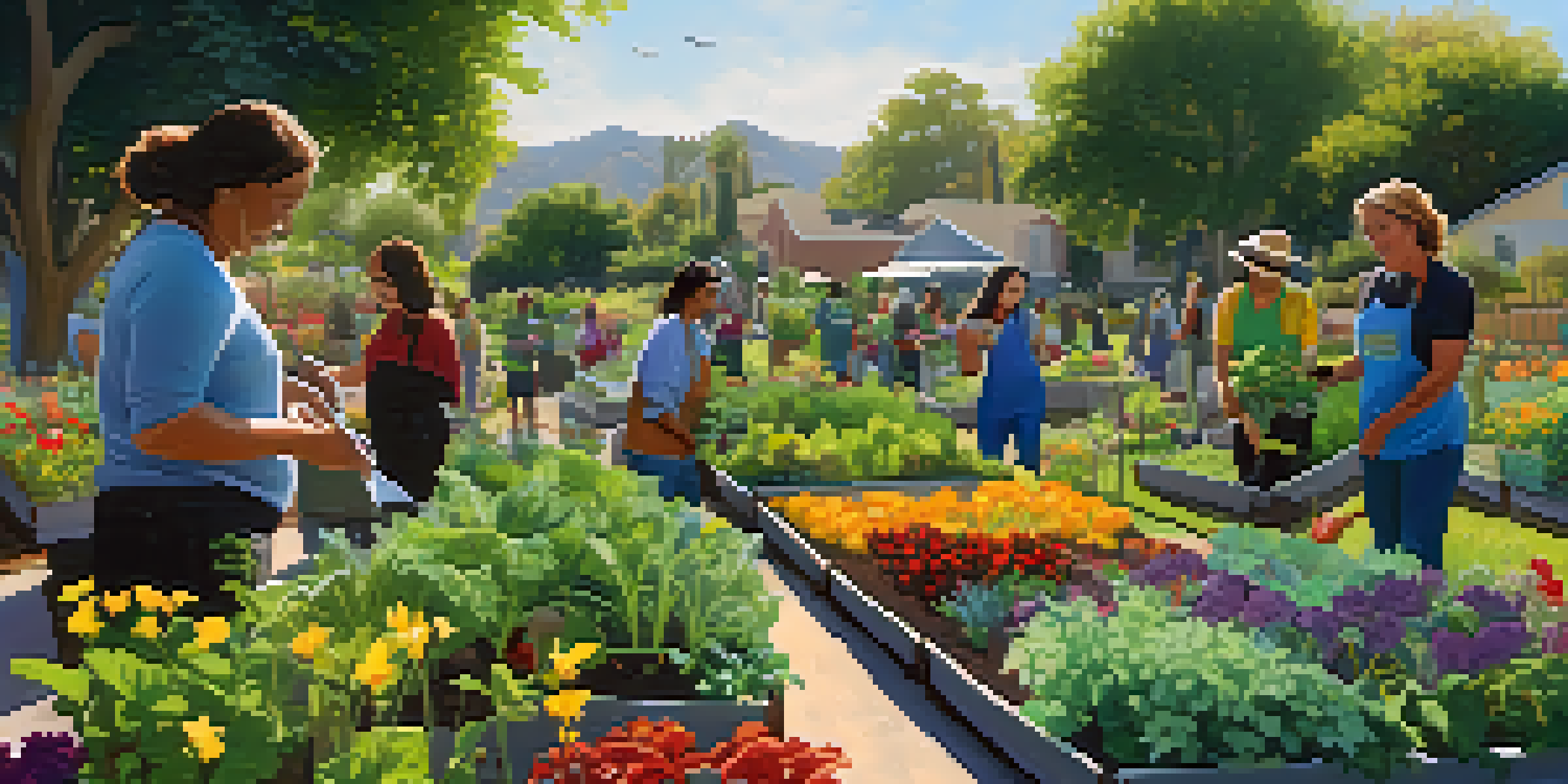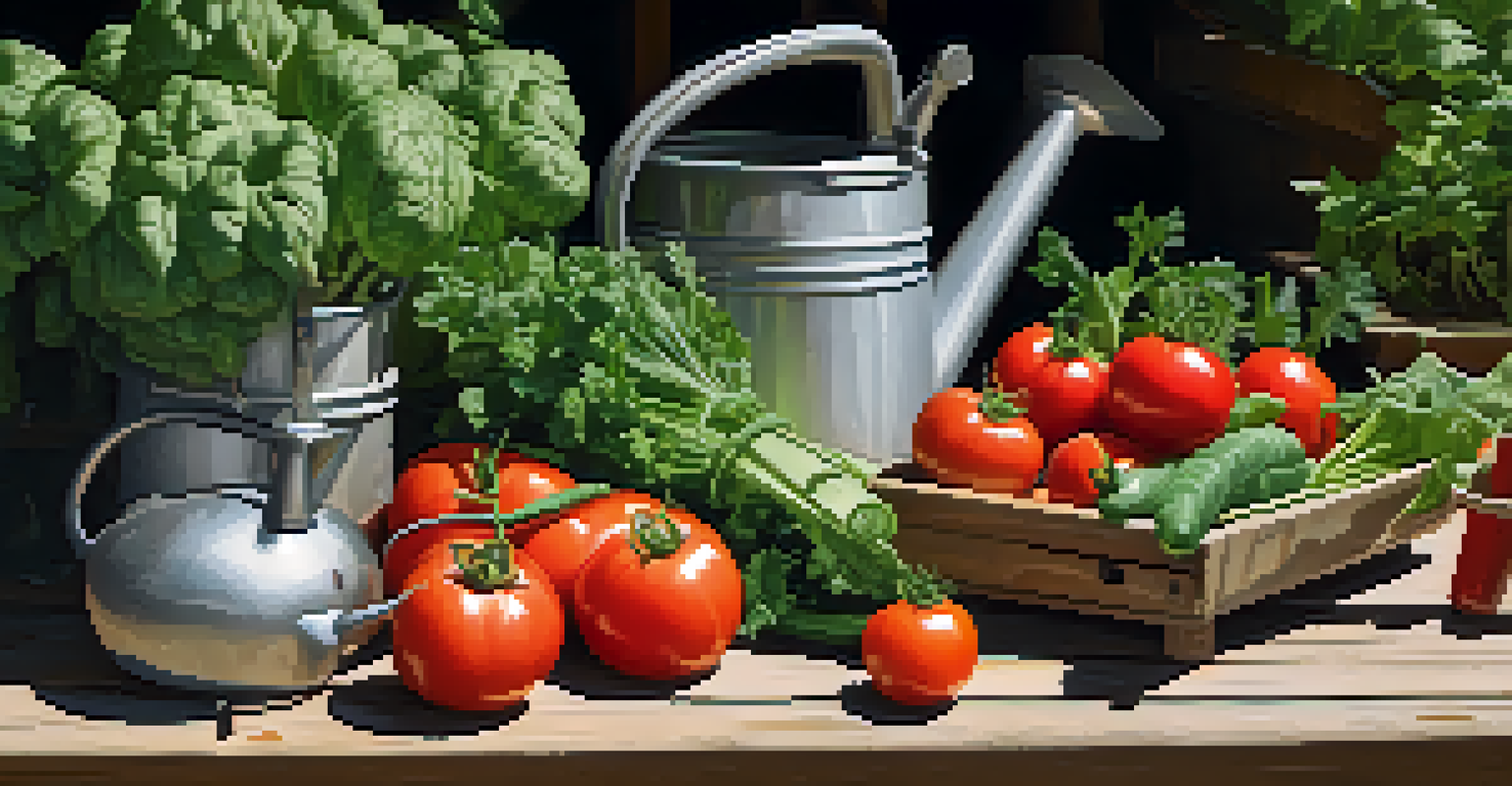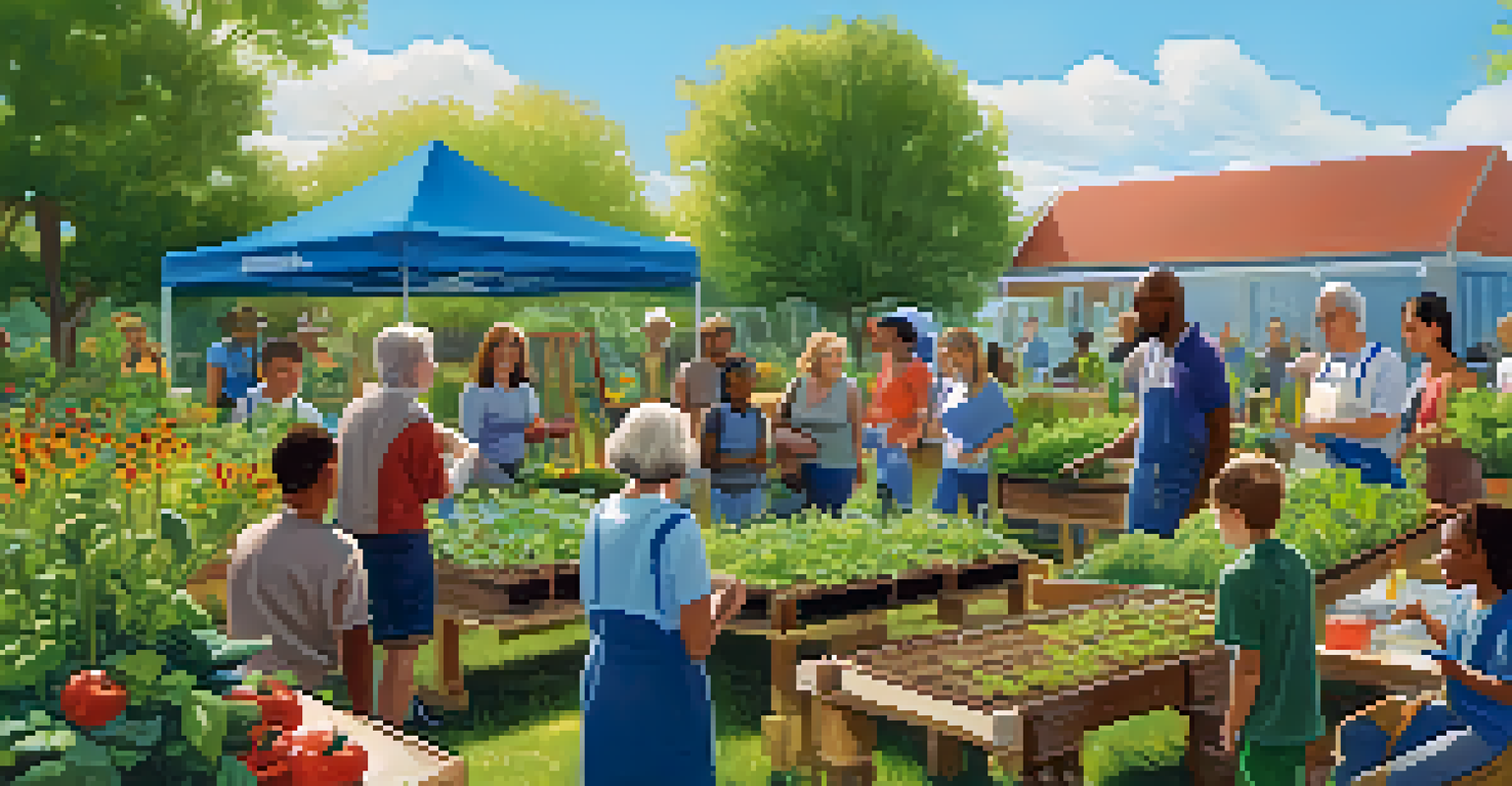Pasadena's Community Gardens: Teaching Sustainability

The Heart of Pasadena: A Community Garden Overview
Pasadena's community gardens are more than just patches of green; they are vibrant hubs of activity and learning. These gardens serve as living classrooms where residents come together to cultivate not just plants, but also a sense of community. With an emphasis on sustainability, they provide practical experiences that teach important environmental principles.
The greatest threat to our planet is the belief that someone else will save it.
Each garden is unique, reflecting the diverse backgrounds and cultures of its members. From native plants to vegetable patches, the choices made by gardeners often tell a story about their heritage and values. This diversity fosters an enriching environment where people can learn from one another and appreciate the beauty of different gardening practices.
Moreover, these spaces are crucial for promoting food security in Pasadena. By growing fresh produce, community gardens help reduce reliance on grocery stores and encourage healthier eating habits. This accessibility to fresh food is an essential step towards creating a sustainable future for the community.
Hands-On Learning: Workshops and Classes
Pasadena's community gardens are not just for planting; they also offer a variety of educational workshops and classes. These events cover a wide range of topics, such as organic gardening, composting, and permaculture techniques. Through hands-on learning, participants gain practical skills that they can apply in their own gardens or homes.

One popular class focuses on sustainable pest management, teaching attendees how to protect their plants without harmful chemicals. Participants often share their experiences, creating a collaborative atmosphere that enhances learning. This approach not only benefits individual gardeners but also contributes to the overall health of the local ecosystem.
Community Gardens Foster Connection
Pasadena’s community gardens create bonds among residents through shared gardening experiences and collaborative events.
By engaging in these educational opportunities, residents become more informed about their environmental impact. This newfound knowledge empowers them to make sustainable choices, from the way they garden to their overall lifestyle. The ripple effect of this learning can lead to a more eco-conscious community.
Fostering Community Connections Through Gardening
Community gardens in Pasadena act as gathering spaces where friendships bloom alongside the flowers. These shared gardens foster connections between neighbors, building a sense of belonging and support. As people work side by side, they exchange ideas, seeds, and even recipes, deepening their bonds.
To plant a garden is to believe in tomorrow.
Events like potlucks and harvest festivals further enhance these connections, celebrating the fruits of their labor. Such gatherings not only create a festive atmosphere but also promote a culture of sharing and collaboration. Participants leave with not just produce, but also lasting relationships.
These connections can have a profound impact on community resilience. When residents work together towards common goals, they build trust and camaraderie that can be invaluable during challenging times. The garden becomes a symbol of unity, demonstrating the strength found in collaboration.
Biodiversity: A Key Component of Sustainable Gardening
One of the core principles of sustainability showcased in Pasadena's community gardens is biodiversity. By cultivating a variety of plants, gardeners not only create a visually appealing space but also promote a healthy ecosystem. Biodiversity helps prevent pests and diseases, reduces the need for chemical interventions, and supports local wildlife.
Many gardeners incorporate native plants, which are adapted to the local climate and soil conditions. These plants provide essential habitats for pollinators like bees and butterflies, contributing to the overall health of the environment. This practice not only supports nature but also enhances the productivity of the garden.
Sustainability Through Education
Hands-on workshops in community gardens empower residents with knowledge about sustainable practices and environmental stewardship.
Through the promotion of biodiversity, community gardens serve as a model for sustainable practices that can be implemented in backyards and urban spaces. By showcasing the benefits of diverse planting, these gardens inspire others to adopt similar strategies, leading to a more sustainable community.
Healthy Eating: From Garden to Table
The journey from garden to table is a vital aspect of Pasadena's community gardens. Residents not only grow their own food but also learn about the nutritional benefits of fresh produce. This hands-on experience fosters a deeper appreciation for local food sources and encourages healthier eating habits.
Many gardeners experiment with seasonal recipes, utilizing the fresh vegetables and herbs they’ve grown. Sharing these meals during community events highlights the connection between gardening and nutrition. This practice not only promotes healthy eating but also reinforces the importance of sustainable agricultural practices.
Additionally, community gardens often collaborate with local chefs and nutritionists to host cooking demonstrations. These events educate attendees on how to prepare wholesome meals using their garden harvest, making healthy eating both accessible and enjoyable. This connection between gardening and nutrition is essential for fostering a healthier community.
Environmental Stewardship: Caring for Our Planet
Pasadena's community gardens are emblematic of environmental stewardship, demonstrating how local action can lead to global change. Gardeners practice sustainable techniques, such as composting and rainwater harvesting, which reduce waste and conserve resources. Through these efforts, they actively contribute to the health of the planet.
By participating in these practices, residents become more aware of their environmental footprint. This awareness often extends beyond the garden, influencing their daily lives and choices. Simple actions like reducing plastic use or conserving water become second nature as they embrace sustainability in all aspects.
Promoting Healthy Eating Habits
Growing fresh produce in community gardens encourages healthier eating and appreciation for local food sources.
The commitment to environmental stewardship found in these gardens serves as an inspiration for others in the community. It highlights the importance of taking responsibility for one’s environment and encourages a collective effort towards sustainability. Together, they show that small, consistent actions can lead to significant positive change.
The Future of Pasadena's Community Gardens
As Pasadena's community gardens continue to thrive, the future looks bright for sustainability education. With increasing interest in gardening and environmental issues, these spaces are becoming even more vital. They offer a platform for innovation and collaboration that can adapt to changing needs and challenges.
Future initiatives may include expanded educational programs that focus on climate change and its impacts on local ecosystems. By equipping residents with knowledge and tools, these programs can help build a more resilient community. This proactive approach will ensure that Pasadena remains a leader in sustainable practices.

Ultimately, the community gardens represent a commitment to nurturing both people and the planet. By fostering a culture of sustainability, they are not just growing food; they are cultivating a brighter future for generations to come. The lessons learned in these gardens will resonate far beyond their borders, inspiring others to take action.